5 Things SCOTUS Justices Alito and Thomas Said About Marriage Equality
05/12/22
trudestress
By continuing to use our site, you agree to our Privacy Policy and Terms of Use.
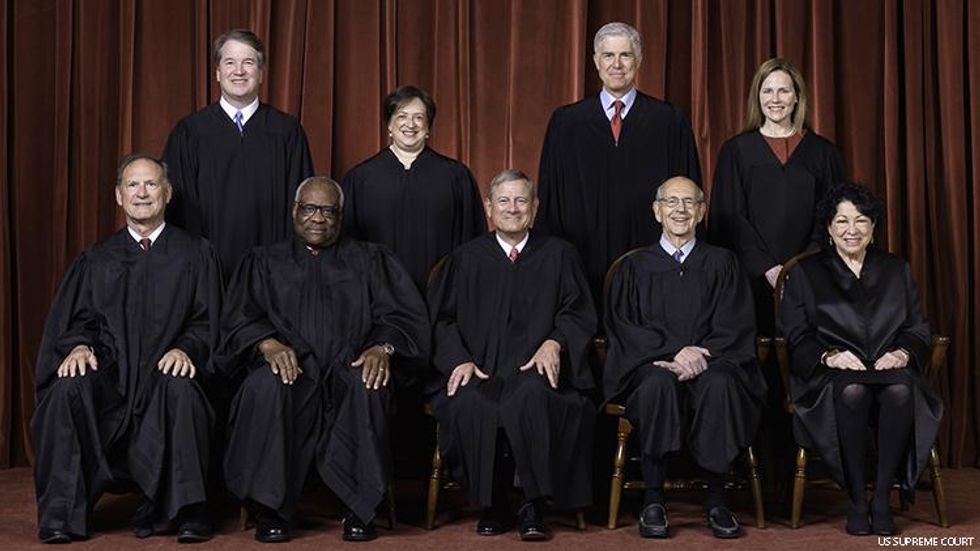
LGBTQ+ Americans are justifiably worried about the future of marriage equality and other rights now that the Supreme Court has made clear its intention to overturn Roe v. Wade, the 1973 decision that legalized abortion nationwide. Justice Samuel Alito, who wrote the leaked majority opinion that, if it becomes final, would overturn Roe, and fellow conservative Justice Clarence Thomas have often made clear they would like to see the court's marriage equality ruling, Obergefell v. Hodges, overturned as well.
They also dissented from the court's 2003 ruling in Lawrence v. Texas, which invalidated anti-sodomy laws which have historically weaponized against the gay community to criminalize homosexual acts. In that case, the majority opinion found the right to consensual sex rooted in the right to privacy. Like Obergefell, privacy was likewise the basis of Roe so invalidating one has ramifications for the others.
Here's a look at several times Alito and Thomas have demonstrated their hostility to LGBTQ+ equality.
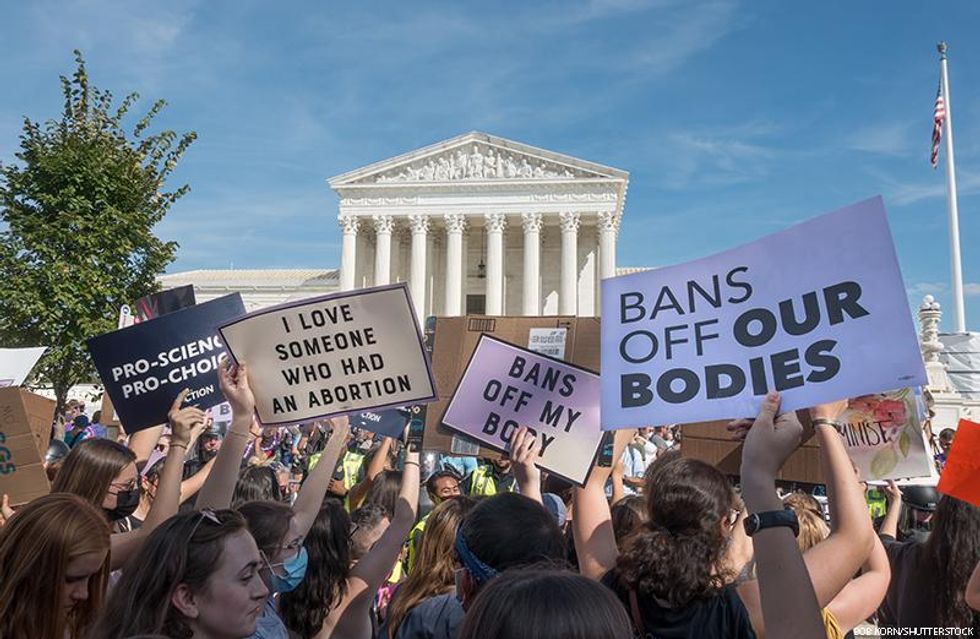
In the leaked opinion in Dobbs v. Jackson Women's Health Organization -- the opinion that would overturn Roe if it becomes final -- Alito criticized the rulings in Lawrence and Obergefell. He wrote that marriage equality and the right to have consensual sex with whomever you choose are, similarly to abortion access, not "deeply rooted in history."
"These attempts to justify abortion through appeals to a broader right to autonomy and to define one's 'concept of existence' prove too much," he wrote. "Those criteria, at a high level of generality, could license fundamental rights to illicit drug use, prostitution, and the like."
He did go on to stipulate that overturning Roe would not necessarily lead to reversing those other rulings, writing, "We emphasize that our decision concerns the constitutional right to abortion and no other right."
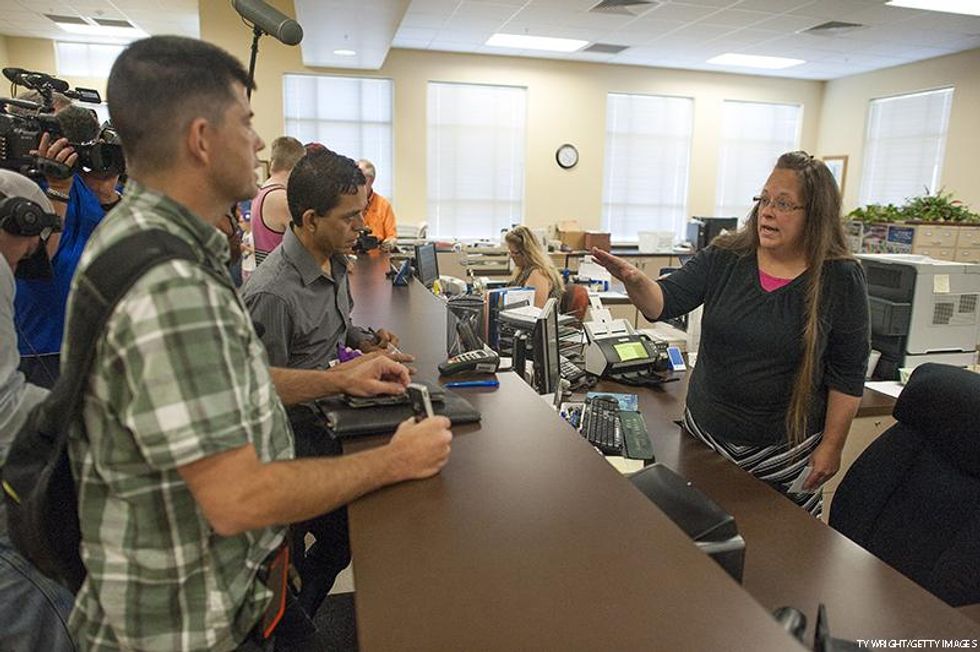
In October 2020, Justices Thomas and Alito called for the reversing of Obergefell in a statement accompanying the court's decision not to hear an appeal of a case involving Kim Davis, the Kentucky county clerk who went to jail for contempt of court rather than issue marriage licenses to same-sex couples, citing her religious beliefs. The statement, written by Alito with Thomas concurring, said the marriage equality ruling threatened religious liberty. "Davis may have been one of the first victims of this Court's cavalier treatment of religion in its Obergefell decision, but she will not be the last," Alito wrote.
"Due to Obergefell, those with sincerely held religious beliefs concerning marriage will find it increasingly difficult to participate in society without running afoul of Obergefell and its effect on other antidiscrimination laws." The statement said the question of marriage equality should have been decided legislatively by each state, which then could have accommodated religious objections to same-sex marriage. Of course, that would result in a patchwork of marriage laws, just as the reversal of Roe would make the right to abortion dependent on the state where one lives.
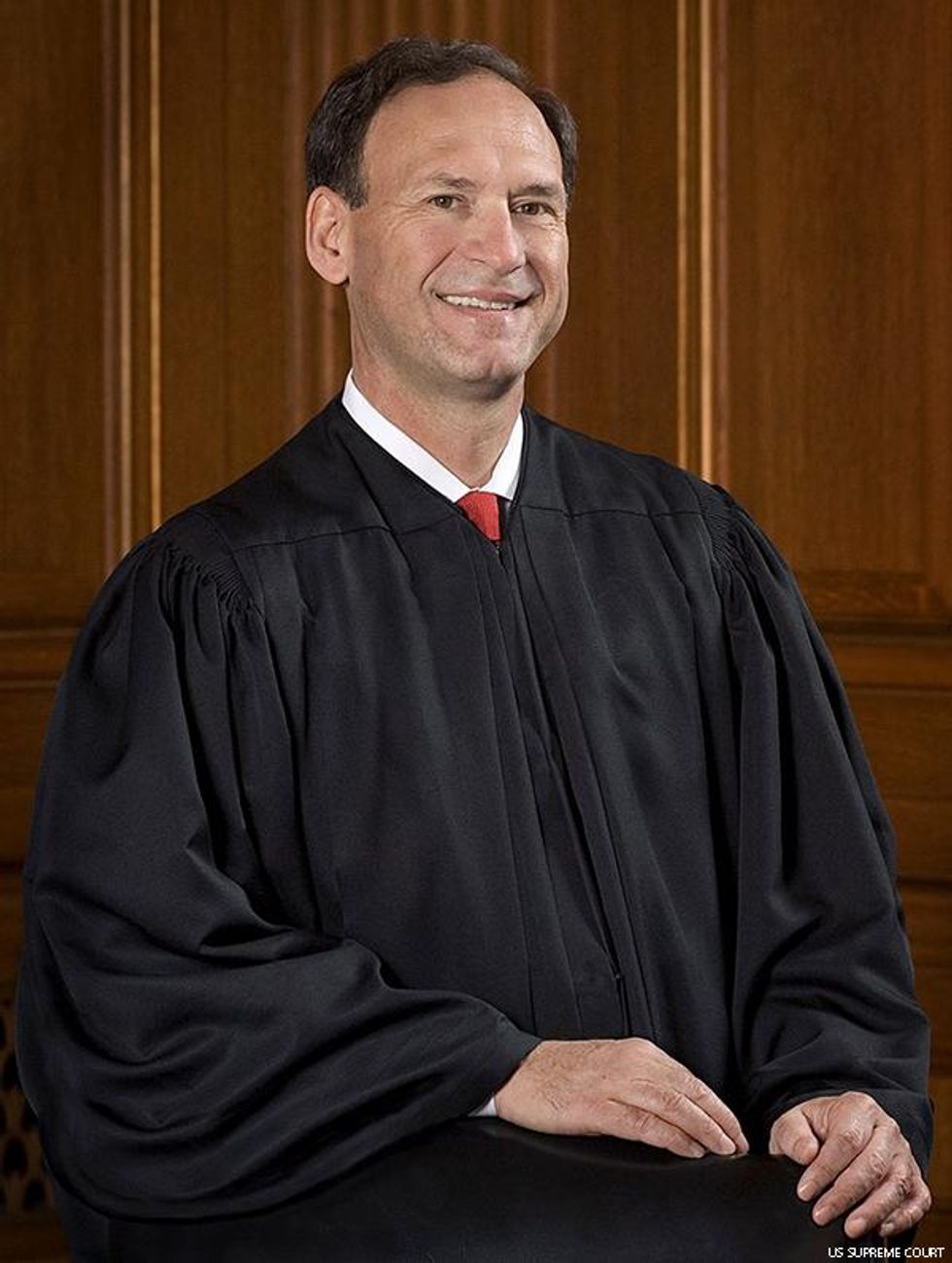
Alito also called Obergefell a threat to freedom of religion and speech in an address to the Federalist Society in November 2020. "You can't say that marriage is a union between one man and one woman," he said. "Until very recently, that's what the vast majority of Americans thought. Now it's considered bigotry. That this would happen after our decision in Obergefell should not have come as a surprise. ... One of the great challenges for the Supreme Court going forward will be to protect freedom of speech. Although that freedom is falling out of favor in some circles, we need to do whatever we can to prevent it from becoming a second-tier constitutional right."
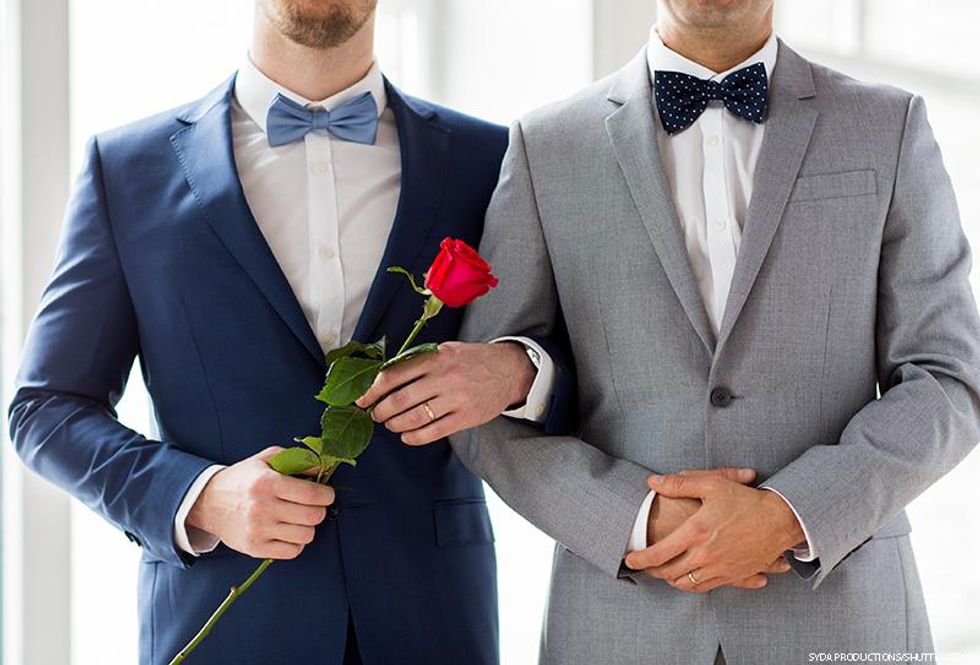
Back in 2015, when the court issued the Obergefell ruling, both Alito and Thomas provided scathing dissents. Alito wrote that the decision alters the "traditional understanding of marriage" and said marriage is "inextricably linked" to procreation. "Today's decision usurps the constitutional right of the people to decide whether to keep or alter the traditional understanding of marriage," he continued. "The decision will also have other important consequences. It will be used to vilify Americans who are unwilling to assent to the new orthodoxy."
Thomas made a "religious liberty" argument. "Had the majority allowed the definition of marriage to be left to the political process -- as the Constitution requires -- the People could have considered the religious liberty implications of deviating from the traditional definition as part of their deliberative process," he wrote. "Instead, the majority's decision short-circuits that process, with potentially ruinous consequences for religious liberty."
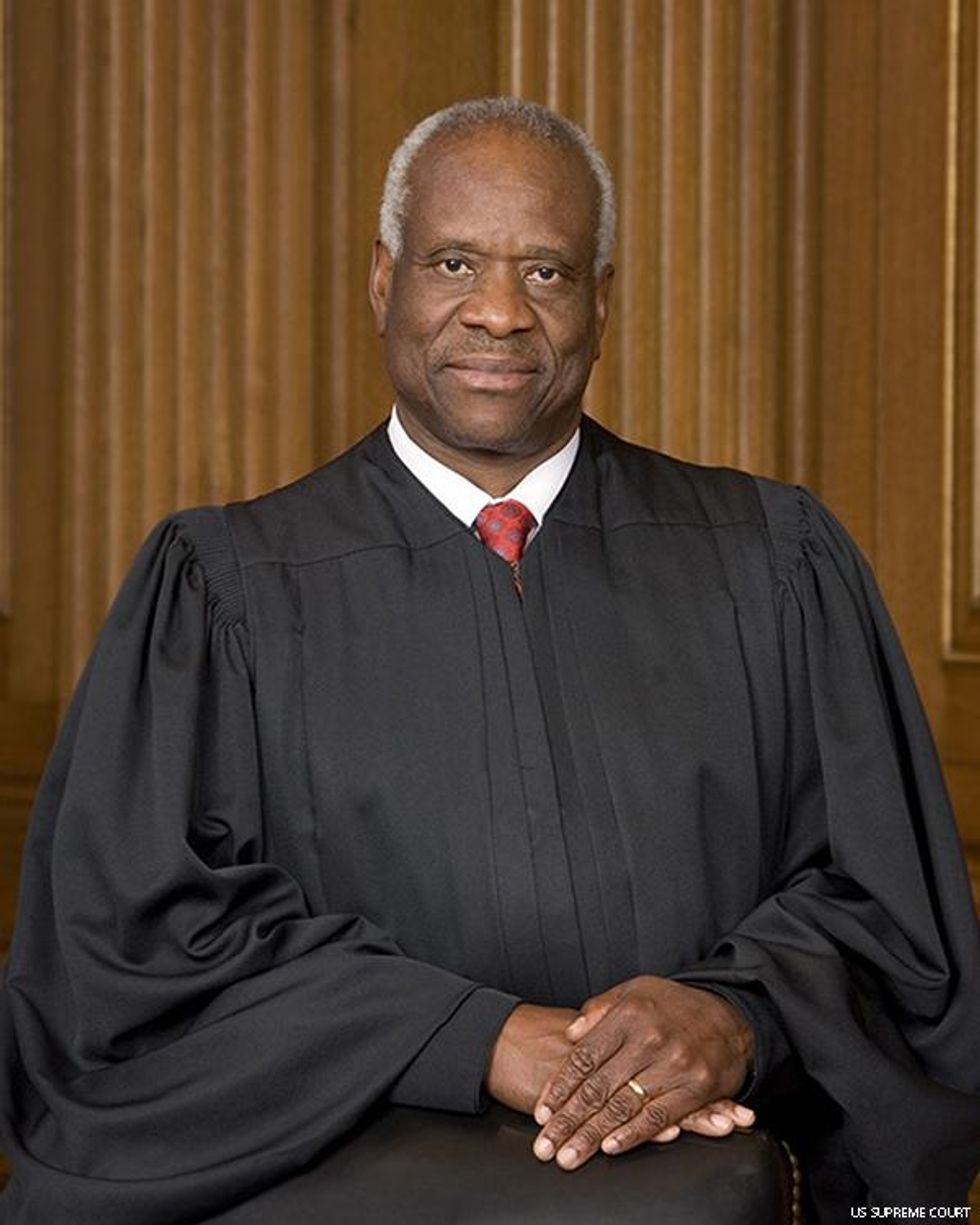
There are many other instances in which the two far-right justices have shown hostility to LGBTQ+ equality. Dissenting from the court's 2020 ruling in Bostock v. Clayton County, in which the court found existing law against sex discrimination (Title VII of the Civil Rights Act of 1964) also covered anti-LGBTQ+ discrimination, Alito wondered if this would lead to civil rights protections for rapists. "Is it plausible that Title VII prohibits discrimination based on any sexual urge or instinct and its manifestations? The urge to rape?" Alito wrote. Thomas joined in his dissent.
In the Masterpiece Cakeshop ruling in 2018, Thomas wrote that the case was an example of the conflict between religious freedom and LGBTQ+ equality that he predicted Obergefell would cause. Masterpiece Cakeshop owner Jack Phillips had refused to make a wedding cake for a same-sex couple, and the Colorado Civil Rights Commission ruled that he violated the state's antidiscrimination law. The high court vacated that judgment, saying the commission had shown insufficient respect for Phillips's religious beliefs, but it did not create a broad right to discriminate. "Because the Court's decision vindicates Phillips' right to free exercise, it seems that religious liberty has lived to fight another day," Thomas wrote. "But, in future cases, the freedom of speech could be essential to preventing Obergefell from being used to 'stamp out every vestige of dissent' and 'vilify Americans who are unwilling to assent to the new orthodoxy.'"